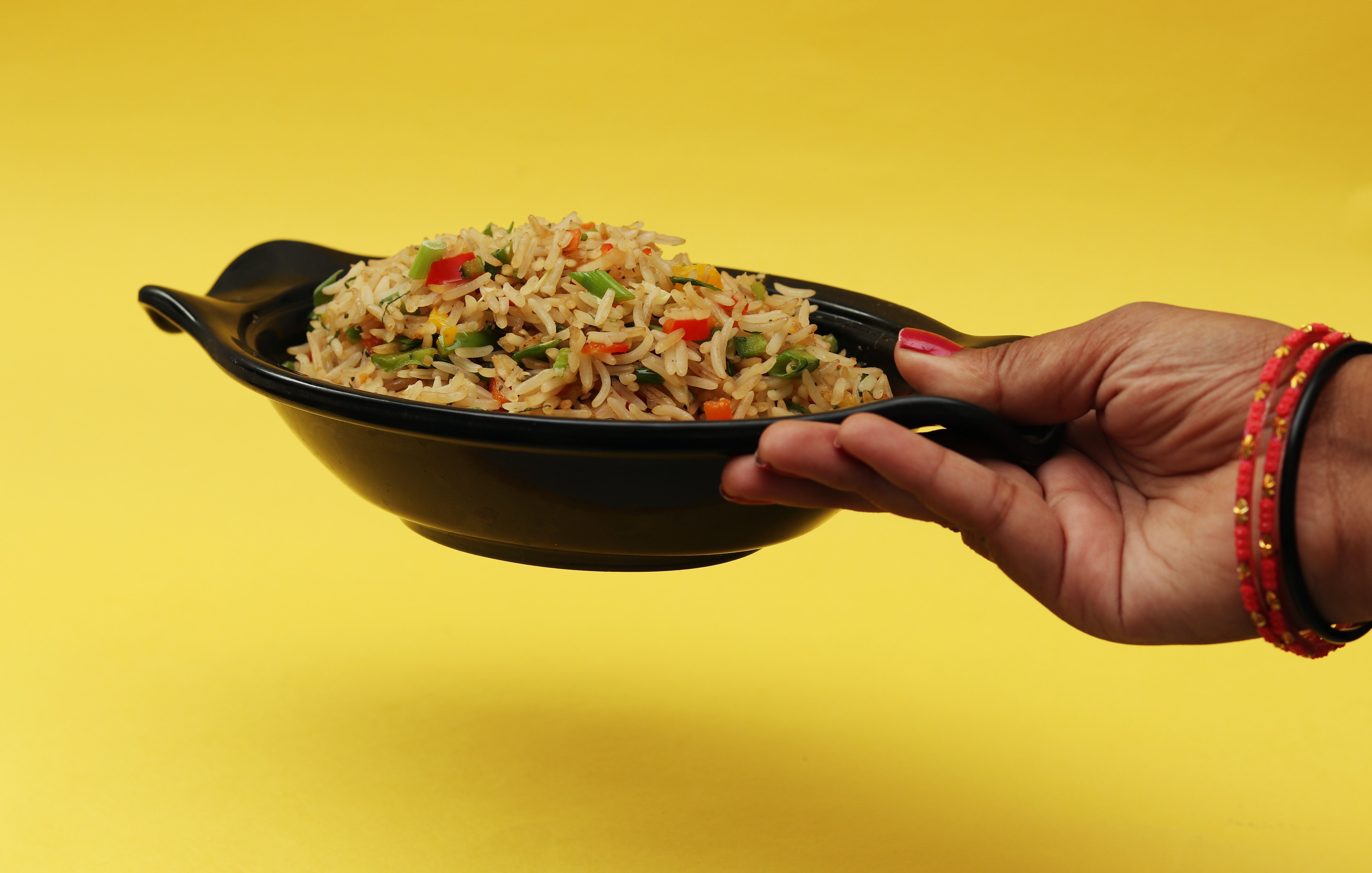Vegetables Fit Into Any Healthy Eating Plan
TEXARKANA, Ark. –
Vegetables are versatile and will fit into any healthy-eating plan. Whether you enjoy them raw or cooked, in a casserole or stir-fry, they are nutritional powerhouses with vitamins, minerals and dietary fiber. Plus, they are naturally low in fat, sodium and calories and contain no cholesterol.
Vegetables also have phytochemicals, a group of compounds that may help prevent chronic diseases such as heart disease, diabetes and some cancers. Many vegetables, such as broccoli, green peppers and spinach, are also good sources of antioxidants, substances that slow down oxidation, a natural process that leads to cell and tissue damage.
When choosing vegetables, think variety for different nutrients. For example, asparagus is high in Vitamin C and folate; carrots are an excellent source of Vitamin A. Eating a variety of colorful vegetables not only ensures that you get more nutrients, but also helps make your meals and snacks more appealing.
Selecting, storing, preparing and serving the highest quality vegetables are essential for vegetables to retain their flavor and nutrients. When selecting vegetables, look for brightly colored, blemish-free surfaces and regular characteristic shapes and sizes. Sort through and discard any damaged items. Bruises and nicks can attract mold, which can lead to spoilage of an entire bag of vegetables. Leaves or greens should be crisp, not wilted.
Buy only the fresh vegetables you plan to eat within a few days. Long storage time reduces nutrient levels, appeal and taste. For the best value, choose in-season vegetables. Typically, the closer you are to the growing season, the fresher your produce and the better it tastes. Don’t forget to shop your local farmers market. Aside from your home garden, they are as fresh as you may get.
Storage is key to retain nutritional value and quality. Store vegetables according to their type. Store root vegetables, such as potatoes and yams, in a cool, dark place; store most other vegetables in the refrigerator crisper drawer. Regardless of what you might have been taught, don’t wash vegetables before storing.
Before preparing your vegetables, wash them thoroughly to remove dirt and residue before cooking. If possible, use a small scrub brush to help clean potatoes, cucumbers or other vegetables that have edible skin.
In order to preserve as many of the nutrients and fiber as you can, leave edible peels on vegetables whenever possible. This includes potatoes, carrots, etc. The peels of many vegetables contain considerable amounts of nutrients and fiber that we need as part of a healthy diet.
Don’t forget that many vegetables can be enjoyed raw. Keep bell peppers, broccoli, carrots, cauliflower, bite-size tomatoes, celery, or other raw vegetables cleaned and ready to eat in your refrigerator. Keep them in sight and within easy reach for family members.
With time so important today, don’t forget about quick-cooking techniques; stir-frying, steaming and microwaving are all quick-cooking methods. Long exposure to higher temperatures leads to some loss of nutrients. Try to use as little water as possible when cooking vegetables and consider reserving any cooking water, which contains nutrients, for adding to soups, stews or sauces.
On your next trip through the produce section of your grocery store or farmers market, take note of all the different varieties of vegetables available, and don’t limit yourself to familiar favorites. Make it a goal to try at least one new vegetable each shopping trip. You may discover new favorites that add both interest and health benefits to your diet.
For more information about vegetables in your diet, or even a planting schedule to know when to plant, contact me at the Miller County Extension Office, 870-779-3609 or visit us in room 215 at the Miller County Courthouse. We're online at cdue@uada.edu, on Facebook and Twitter @MillerCountyFCS or on the web at uaex.uada.edu/Miller.
Veggie Rice Pilaf is one of my favorite recipes. It is quick and healthy.
Veggie Rice Pilaf
2 cups broth (chicken, beef or vegetable)
1 tablespoon margarine
1 cup instant brown rice
3/4 cup vegetables (any combination)
1/3 cup sliced green onions
1/4 teaspoon black pepper
Preheat oven to 350 degrees F. In a microwave safe bowl, combine broth, brown rice and margarine. Microwave according to time given on rice package. Stir well. Add remaining ingredients and stir. Pour into 9x13-inch prepared baking pan and bake for 15 minutes until heated through and liquid from rice is absorbed. Remove from oven and let stand, covered, for 5 minutes. Fluff with fork and serve.
By Carla Due
County Extension Agent - FCS
The Cooperative Extension Service
U of A System Division of Agriculture
Media Contact: Carla Due
County Extension Agent - FCS
U of A Division of Agriculture
Cooperative Extension Service
400 Laurel Street, Suite 215 Texarkana AR 71854
(870) 779-3609
cdue@uada.edu
The Arkansas Cooperative Extension Service is an equal opportunity institution. If
you require a reasonable accommodation to participate or need materials in another
format, please contact your County Extension office (or other appropriate office)
as soon as possible. Dial 711 for Arkansas Relay.
Pursuant to 7 CFR § 15.3, the University of Arkansas System Division of Agriculture
offers all its Extension and Research programs and services (including employment)
without regard to race, color, sex, national origin, religion, age, disability, marital
or veteran status, genetic information, sexual preference, pregnancy or any other
legally protected status, and is an equal opportunity institution.
